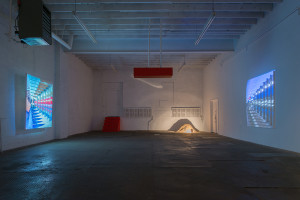
The New York Times published the following review on the new show of the Morocco born Meriem Bennani
Meriem Bennani’s ‘Gradual Kingdom’ Focuses on Morocco
By MARTHA SCHWENDENERDEC. 3, 2015
A view of Meriem Bennani’s “Gradual Kingdom” exhibition at Signal in Bushwick, Brooklyn. Credit Courtesy of the artist, Dan McMahon/Signal
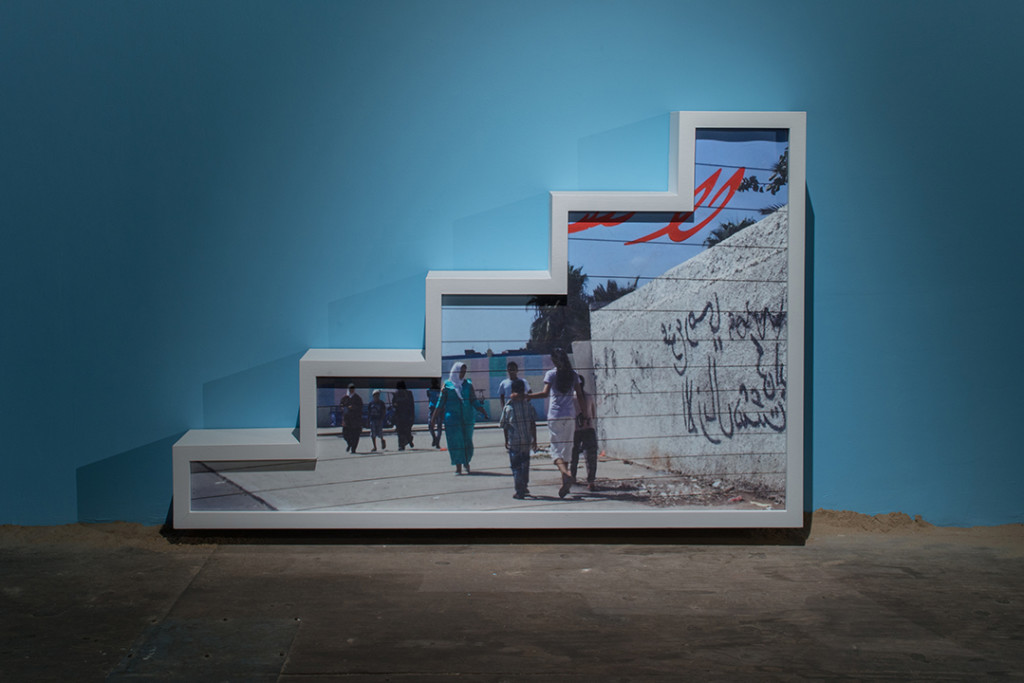
Meriem Bennani’s first show at Signal, “Gradual Kingdom,” might not be as funny as her other projects, which have appeared on sites like Instagram and included a reality show parody (now under actual development) about a hijab designer whose zany head scarves function as purses or Carmen Miranda-like apparatuses. Instead, this exhibition focuses on her hometown, Rabat, Morocco, and how it fits, sometimes depressingly, into global networks of commerce and real estate.
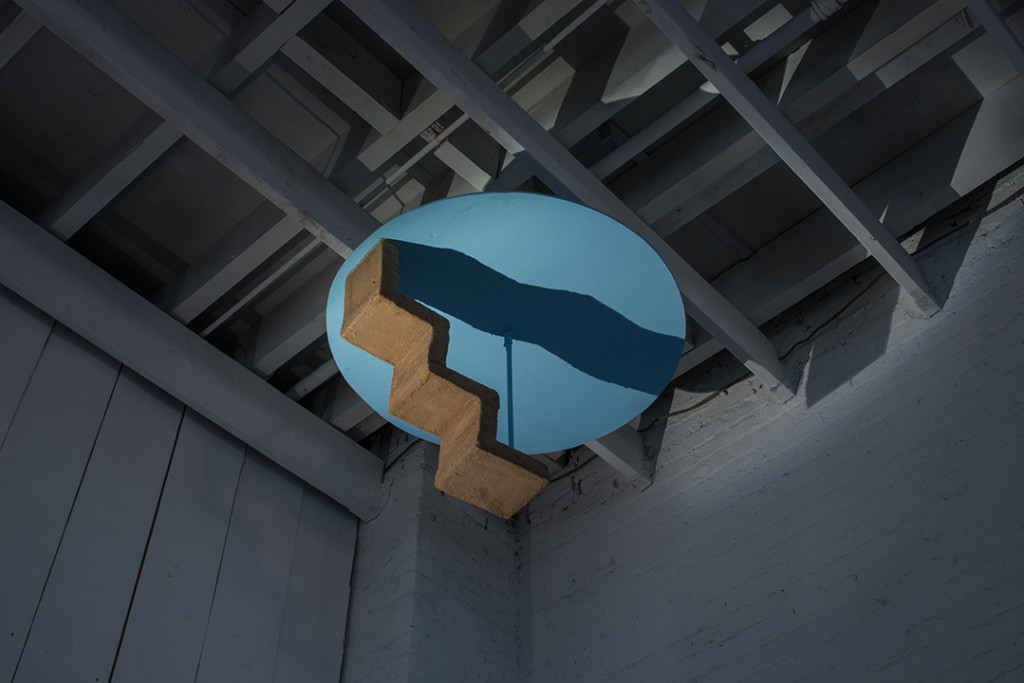
Near the gallery’s entrance are three rudimentary hologram machines — made out of televisions, glass panels and LEDs — displaying images of filtering sand, drifting rose petals and shattering glass. A narrow, floating staircase attached to one wall is coated with sand and leads nowhere. More sand is in the rear of the gallery, this time a pile with an elongated iPhone sculpture lying on it. Ms. Bennani’s home region has nearly been depleted of sand, which has been exported to build artificial islands in the Middle East and offset erosion at luxury beaches around the world. (The sand here comes from an industrial supplier across the street from the gallery.)
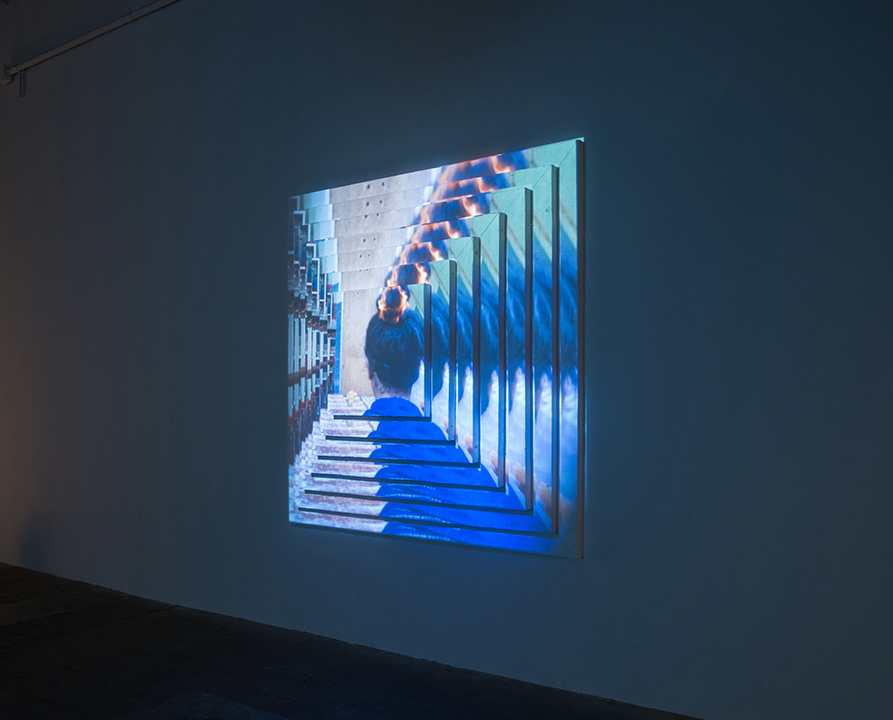
The centerpiece of Ms. Bennani’s show is a colorful video projected onto plastic foam structures that have been constructed as bisected pyramids — one convex, one concave — and mounted on opposite walls. Video images of mundane scenes from Rabat, mostly of people working, are projected onto the pyramids, becoming abstracted and psychedelic. The disorienting effect is enhanced by a soundtrack that includes a slowed-down version of Mariah Carey’s “Vision of Love” and a karaoke version of Justin Bieber’s “U Smile.”
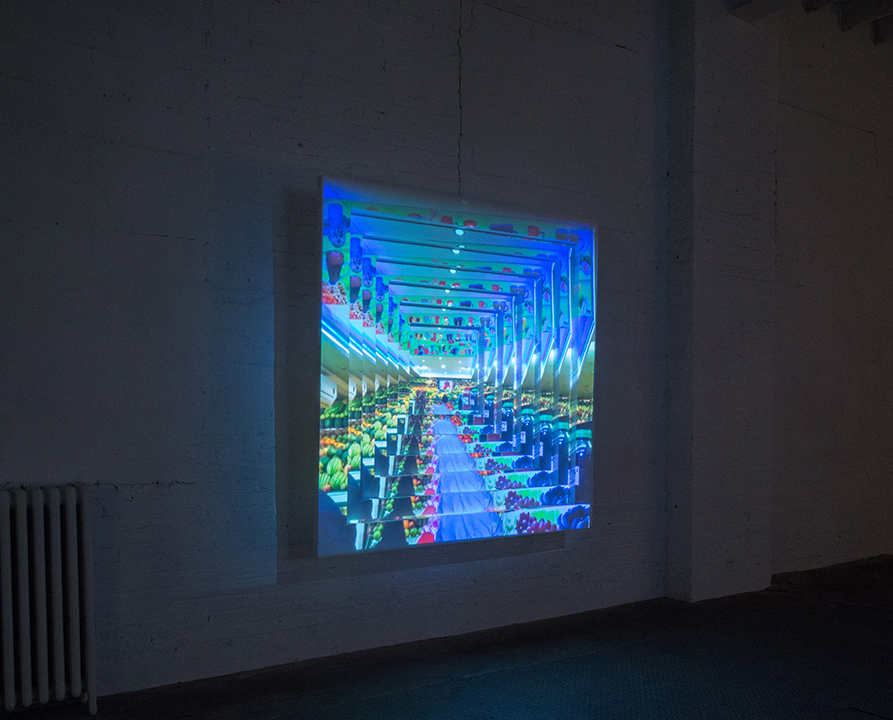
Seductive, but infused with gentle pathos, Ms. Bennani’s installation is a reminder of the longstanding representation of Morocco as an exotic land, servicing European and North American fantasies — and now affected by its leaders’ desires to make the country a player in the world economy. Turning the old equation inside-out as a local-turned-global artist, Ms. Bennani has created a show that functions like a bittersweet love letter to her hometown. (copyright New York Times)
